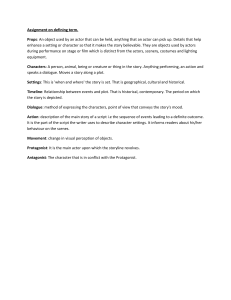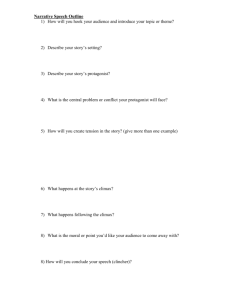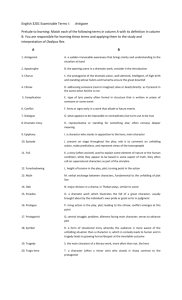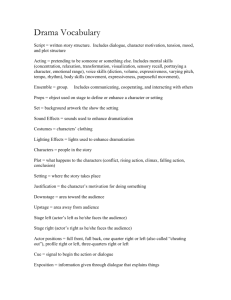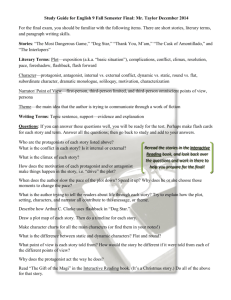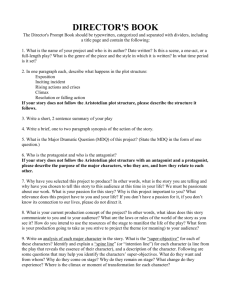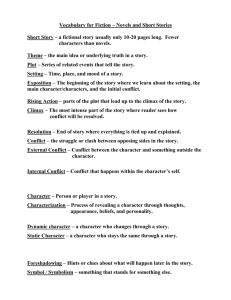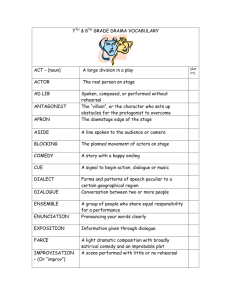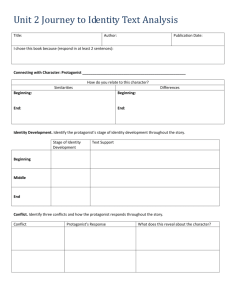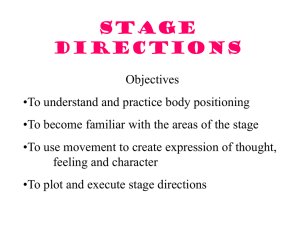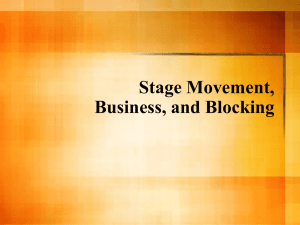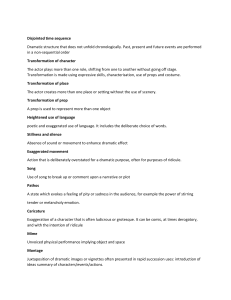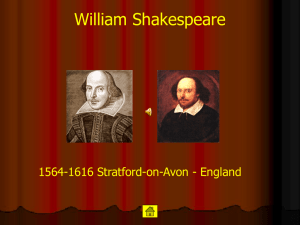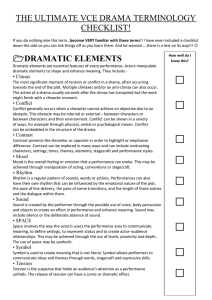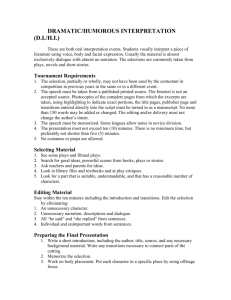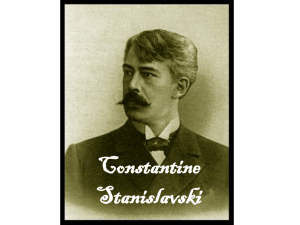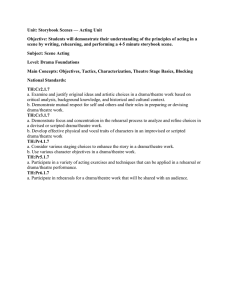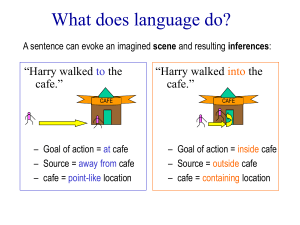Dramatic Structure
advertisement
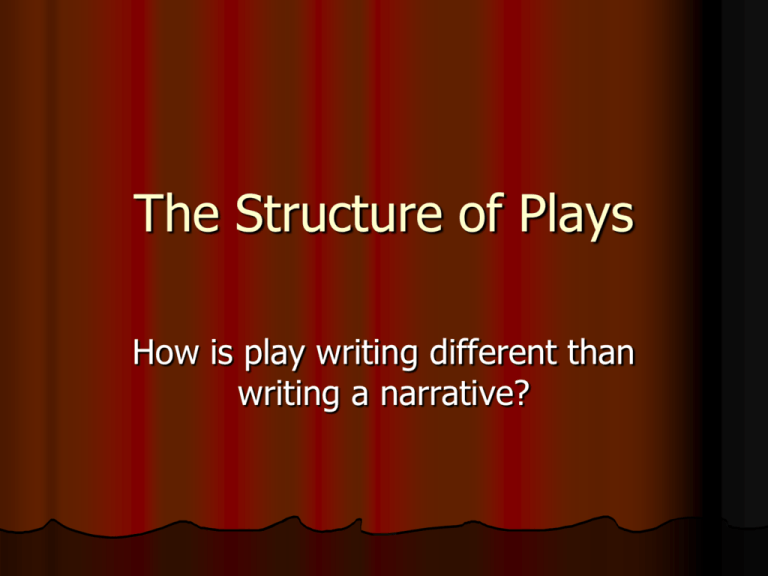
The Structure of Plays How is play writing different than writing a narrative? Parts of the Plot The plot of the play tells the story. Beginning Exposition – Exposes the characters, setting & situation Rising Action – All the events that lead up to the climax Middle Climax – How the protagonist deals with the problem or conflict. Answers the question: Does the protagonist succeed or fail? End Falling Action – Ties up all loose ends. Answers any unanswered questions. Resolution – The outcome of the plot. The ending of the story. Dramatic Structure Plays are written in a special literary style called: Dramatic Structure Character List (sometimes with descriptions) Setting (usually described in detail) Dialogue (does not use quotation marks or dialogue tags) Stage directions (suggestions for movement on stage written in italics or parentheses(), are not spoken by actor, only done) Stage Directions Stage Left & Stage Right: Direction actor goes when standing on stage & facing audience. House Left & House Right: Direction actor goes if he was in audience & facing stage. Stage Directions Upstage: back of the stage, away from audience. Downstage: front of the stage, close to the audience. Structure of Plays A play is divided into large parts called acts. Acts play. are usually large divisions of time within a Acts are divided into smaller parts called scenes. Scenes are usually smaller divisions of time within a play or a change in the location in which the play occurs.
